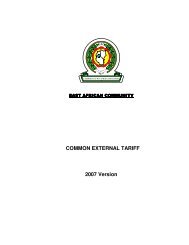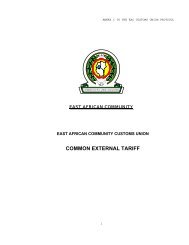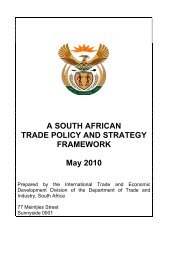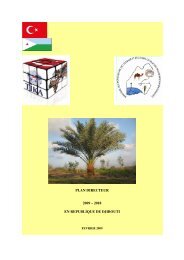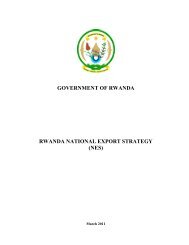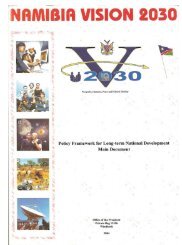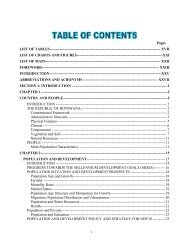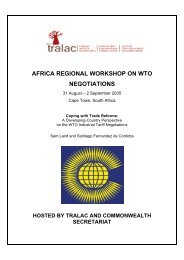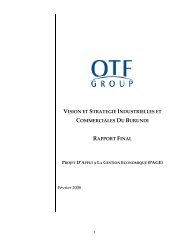National Trade Policy Document 2012 - tralac â trade law centre
National Trade Policy Document 2012 - tralac â trade law centre
National Trade Policy Document 2012 - tralac â trade law centre
You also want an ePaper? Increase the reach of your titles
YUMPU automatically turns print PDFs into web optimized ePapers that Google loves.
FOREWORD<br />
Over the last decade and half, Zimbabwe’s <strong>trade</strong><br />
policy was guided by various <strong>trade</strong>-related <strong>law</strong>s and<br />
regulations administered by different Ministries, as<br />
well as bilateral, regional and multilateral trading<br />
arrangements that the country is signatory to. The<br />
role of <strong>trade</strong> in economic growth and development in<br />
the face of globalisation needs no emphasis. It is in<br />
this context that this comprehensive <strong>National</strong> <strong>Trade</strong><br />
Prof. Welshman Ncube (M.P.)<br />
Minister of Industry<br />
and Commerce<br />
<strong>Policy</strong> was developed to ensure the effective and meaningful participation of<br />
Zimbabwe in the global market.<br />
With the development of the Industrial Development <strong>Policy</strong> (<strong>2012</strong> – 2016), it has<br />
become increasingly important to spell out how <strong>trade</strong> policy will complement<br />
and leverage Zimbabwe’s industrial development, as well as support the broad<br />
based economic growth objectives of the Medium Term Plan. The <strong>National</strong><br />
<strong>Trade</strong> <strong>Policy</strong> specifies measures and strategies that will enable <strong>trade</strong> to be<br />
the engine for sustainable economic growth and development.<br />
The policy sets out the key principles and strategies to drive the economy<br />
towards export-orientation and international competitiveness, in order to<br />
transform Zimbabwe from being an exporter of primary commodities to an<br />
exporter of value added high quality processed goods and services. The<br />
policy will be implemented through strategic <strong>trade</strong> policy instruments, based<br />
on regional and multilateral trading arrangements, supported by an export<br />
development and promotion package.<br />
Further, the policy seeks to diversify the country’s exports, expand and explore<br />
new markets, as well as promote the consumption of locally produced goods<br />
and services. Human skills and institutional capacity development in both the<br />
public and private sectors is also an important guiding principle for the effective<br />
and efficient implementation of the <strong>National</strong> <strong>Trade</strong> <strong>Policy</strong>.<br />
vii



